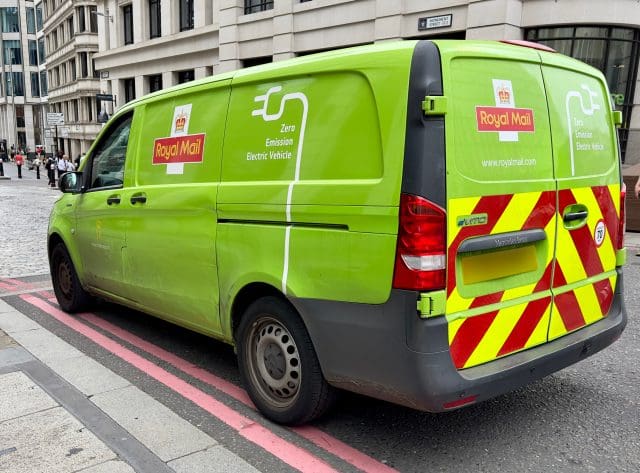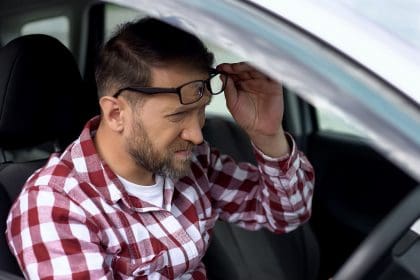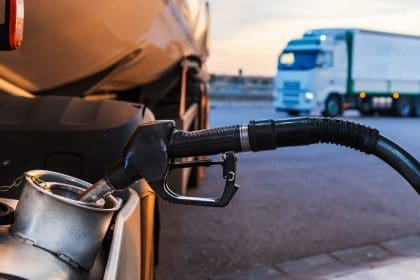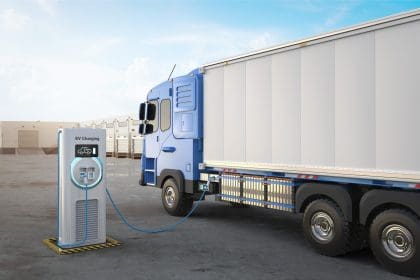In the drive towards greener motoring, switching to electric vans and HGVs cuts more pollution than a family replacing their petrol or diesel car with an EV.
Major UK businesses are continuing to make large-scale switches to EVs, with thousands of electric vans expected to be delivered in the next year – and helping cut pollution produced by transport.
The government’s Transport and environment statistics: 2023 show that per mile, HGVs produce a disproportionately larger amount of pollution on UK roads compared to cars, despite making up a smaller percentage of road miles travelled.
Figures show that although the domestic transport sector remains the largest emitting sector in the UK, accounting for 29.1% of all greenhouse gas emissions in 2023, this figure includes travel by road, air, sea and train.
Special delivery
The Royal Mail sealed its commitment to cutting pollution in 2017 with its first 100 electric delivery vans. It has now has a fleet of 7,000, with more to deliveries in the pipeline.
Fleet World reports that having achieved the milestone, Royal Mail will be adding a further 1,800 electric vans during the next year.
The company’s 7,000th electric van has been delivered to the South Lambeth Delivery Office, to join the 70 others already used for deliveries and collections.
Since the latest delivery to South Lambeth, Royal Mail has added a further 100 EVs to its fleet, making it the largest EV fleet in the UK.
A further 1,800 electric vans, along with supporting charging infrastructure, will go live over the next year, almost half of which will be supplied by Stellantis and built at its Ellesmere Port plant.
By the end of 2026 it could be overtaken by BT which has placed an order for 3,500 electric vans, giving it a total of 8,000 next year.
BT currently has the UK’s second-largest fleet with 27,000 vehicles used by engineers across the country. Of those, there are 4,300 electric vehicles and the order of the new EVs is part of a larger delivery of 6,000 new vehicles, with more than half of the vans being EVs.
To put these figures into context, there are a record 4.5 million vans on British roads – a 37% increase on 2015 figures – so there is a long way to go.
Sustainability
Fleet World reports that almost a quarter of Royal Mail’s delivery offices now use electric vehicles for deliveries and collections and that nearly all of the company’s electric vans are charged onsite with purchased 100% renewable electricity supply.
Royal Mail is going further to enhance its green credentials with the introduction of its first electric lorries. In collaboration with Magtec and supported by an £800,000 grant from Innovate UK, the delivery service is putting the two new 19-tonne lorries through their paces.
Alistair Cochrane, Royal Mail’s chief operating officer, said: “Today, we’ve hit a major milestone in our journey to reach net zero by 2040.
“We’ve strengthened our position as the UK’s largest electric delivery fleet and our investment in 1,800 more zero-emission vans will help us maintain this in the future.
“Royal Mail is going the extra mile to decarbonise its fleet, with huge benefits for our posties, our customers and the planet.”
It is good to see companies like Royal Mail and BT make the switch to greener motoring. As with Manchester’s Bee bus network, which has more than 300 electric vehicles and another 1,000 on the way, switching larger, more-polluting vehicles to green energy makes more of an impact than one family switching its car.
Fleet Insurance with Patons
Whether you run a fleet of three or thousands of vehicles, we can help you find Fleet Insurance. We can provide policies for trucks, vans, cars and taxis in any combination, for any type of business. Start your free, no-obligation insurance quote by calling us on 0333 015 6886 or completing the quote form.




